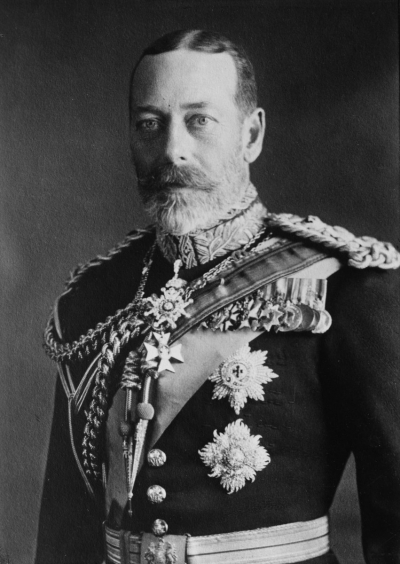The House of Windsor is the reigning royal house of the United Kingdom and the other Commonwealth realms. In 1901, a line of the House of Saxe-Coburg and Gotha (itself a cadet branch of the House of Wettin) succeeded the House of Hanover to the British monarchy with the accession of King Edward VII, son of Queen Victoria and Prince Albert of Saxe-Coburg and Gotha. In 1917, the name of the British royal house was changed from the German Saxe-Coburg and Gotha to the English Windsor because of anti-German sentiment in the United Kingdom during the First World War. There have been four British monarchs of the House of Windsor since then: George V, Edward VIII, George VI, and Elizabeth II.
The current head of the house is monarch of fifteen sovereign states. These are the United Kingdom (where they are based), Canada, Australia, New Zealand, Jamaica, the Bahamas, Grenada, Papua New Guinea, Solomon Islands, Tuvalu, Saint Lucia, Saint Vincent and the Grenadines, Belize, Antigua and Barbuda, and Saint Kitts and Nevis. As well as these separate monarchies, there are also three Crown dependencies, fourteen British Overseas Territories and two small associated states of New Zealand: the Cook Islands and Niue.
George V (George Frederick Ernest Albert; 3 June 1865 – 20 January 1936) was King of the United Kingdom and the British Dominions, and Emperor of India, from 6 May 1910 until his death in 1936.
Born during the reign of his grandmother Queen Victoria, George was the second son of Albert Edward, Prince of Wales, and was third in the line of succession to the British throne behind his father and elder brother, Prince Albert Victor. From 1877 to 1892, George served in the Royal Navy, until the unexpected death of his elder brother in early 1892 put him directly in line for the throne. On Victoria's death in 1901, George's father ascended the throne as Edward VII, and George was created Prince of Wales. He became king-emperor on his father's death in 1910.
George's reign saw the rise of socialism, communism, fascism, Irish republicanism, and the Indian independence movement, all of which radically changed the political landscape of the British Empire. The Parliament Act 1911 established the supremacy of the elected British House of Commons over the unelected House of Lords. As a result of the First World War (1914–1918), the empires of his first cousins Nicholas II of Russia and Wilhelm II of Germany fell, while the British Empire expanded to its greatest effective extent. In 1917, he became the first monarch of the House of Windsor, which he renamed from the House of Saxe-Coburg and Gotha as a result of anti-German public sentiment. In 1924, George appointed the first Labour ministry and the 1931 Statute of Westminster recognised the Empire's dominions as separate, independent states within the British Commonwealth of Nations.
He suffered from smoking-related health problems throughout much of his later reign, and at his death was succeeded by his eldest son, Edward VIII.

1917Jul, 17
King George V issues a Proclamation stating that the male line descendants of the British Royal Family will bear the surname Windsor.
Choose Another Date
Events on 1917
- 22Jan
Woodrow Wilson
World War I: President Woodrow Wilson of the still-neutral United States calls for "peace without victory" in Europe. - 15Mar
Nicholas II of Russia
Tsar Nicholas II of Russia abdicates the Russian throne ending the 304-year Romanov dynasty. - 2Apr
Woodrow Wilson
World War I: United States President Woodrow Wilson asks the U.S. Congress for a declaration of war on Germany. - 5Jun
Conscription
World War I: Conscription begins in the United States as "Army registration day". - 27Jul
Battle of Passchendaele
The Allies reach the Yser Canal at the Battle of Passchendaele.

 English
English  español
español  français
français  português
português  русский
русский  العربية
العربية  简体中文
简体中文 